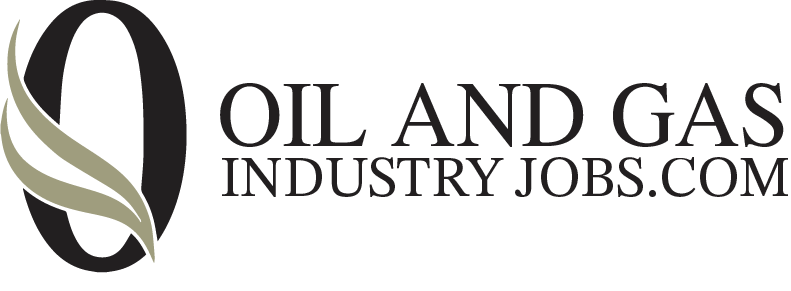
Introduction to oilfield inspections
Oilfield inspections are essential for ensuring the safety and efficiency of oil and gas operations. Inspectors are responsible for evaluating equipment, processes, and facilities to make sure they meet industry standards and regulations. Some key points to know about oilfield inspections include:
- Inspectors need a strong understanding of technical aspects related to oil and gas operations. This includes knowledge of equipment, machinery, and safety protocols.
- Qualifications for a career in oilfield inspections often include a relevant technical degree or certification, as well as practical experience in the field.
- Inspectors play a crucial role in preventing accidents, maintaining environmental compliance, and upholding industry best practices.
Overall, oilfield inspections are vital to the smooth functioning and safety of oil and gas operations.

Job responsibilities and duties of an oilfield inspector
Oilfield inspectors are responsible for examining and monitoring equipment and processes in oil and gas production facilities. They must ensure compliance with safety regulations, environmental standards, and company policies. This includes inspecting pipelines, drilling rigs, and storage tanks, as well as testing and maintaining safety equipment. Inspectors also document their findings and communicate any issues to management. Key responsibilities include:
- Conducting routine inspections of equipment and facilities
- Identifying potential hazards and safety concerns
- Performing tests and measurements to ensure operational integrity
- Recording and reporting inspection findings
- Collaborating with engineers and maintenance teams
The role of an oilfield inspector requires a strong attention to detail, knowledge of industry regulations, and a dedication to safety and environmental standards.
Necessary educational qualifications
Most entry-level positions in oilfield inspections require a high school diploma or equivalent. However, for advanced roles and career progression, a bachelor’s degree in engineering or a related field is often necessary. Some companies may also seek candidates with specific certifications, such as the American Petroleum Institute’s API 510, 570, and 653 certifications. These certifications demonstrate knowledge and expertise in inspection, maintenance, repair, and alteration of in-service pressure vessels, pipelines, and storage tanks. Acquiring these qualifications can significantly enhance your prospects in the field of oilfield inspections.
Certifications and licenses required
To work in oilfield inspections, you need specific certifications and licenses. These may include certifications in non-destructive testing, such as ASNT Level II, as well as certifications in API standards, like API 510, API 570, and API 653. Additionally, you may need a commercial driver’s license (CDL) to operate vehicles on-site. It’s essential to check with your local regulatory body to ensure you meet all the necessary requirements.
Skills and experience needed
Working in oilfield inspections requires strong technical skills and a solid understanding of safety regulations. Experience in construction, welding, or mechanical work is often highly valued in this field. Additionally, having a certification such as API 570 or API 510 is beneficial for advancing your career in oilfield inspections. Solid problem-solving skills and the ability to work well under pressure are also essential for success in this role.
Importance of safety in oilfield inspections
Safety is of utmost importance in oilfield inspections. It is crucial to ensure that all workers are equipped with the necessary training and knowledge to prevent accidents and ensure the well-being of everyone on the site. By prioritizing safety, companies can minimize the risk of accidents, injuries, and environmental damage, ultimately leading to a more efficient and sustainable operation.
Career opportunities and growth prospects
The oil and gas industry offers various career opportunities with room for growth. As an oilfield inspector, you can advance your career by gaining experience and qualifications. Some potential career paths include becoming a lead inspector, senior inspector, or even a supervisor. The demand for oilfield inspections is expected to increase, which may result in more job opportunities and potential advancements in your career.
Challenges and risks in oilfield inspections
Oilfield inspections come with several challenges and risks that professionals need to be aware of. These challenges can include working in remote and harsh environments, dealing with heavy machinery, and exposure to hazardous materials. Additionally, the risks involved in oilfield inspections can range from potential accidents and injuries to encountering natural elements such as extreme weather conditions. It’s essential for individuals pursuing a career in oilfield inspections to be mentally and physically prepared for these challenges and risks, as well as to be equipped with the necessary safety training and protective gear.
Job outlook and potential employers
The job outlook for oilfield inspections is promising, with a growing demand for skilled professionals in the industry. Potential employers include oil and gas companies, engineering firms, environmental consulting companies, and government regulatory agencies. These employers seek candidates with strong technical expertise, problem-solving skills, and a thorough understanding of safety regulations and industry standards. With the increasing focus on environmental compliance and safety in the oil and gas sector, there is a continuous need for qualified inspectors to ensure operational integrity and regulatory compliance. If you are considering a career in oilfield inspections, pursuing the necessary qualifications and gaining relevant experience can open up a range of opportunities in this dynamic field.
Conclusion and summary
Before pursuing a career in oilfield inspections, it’s important to understand the qualifications needed for this field. A combination of technical knowledge, relevant certifications, and hands-on experience are crucial for entering and advancing in this industry. To summarize, a successful career in oilfield inspections requires a solid understanding of engineering principles, specialized training in inspection techniques, and a commitment to continuing education to keep up with industry standards and best practices. By meeting these qualifications, you can position yourself for a rewarding and successful career in oilfield inspections.
